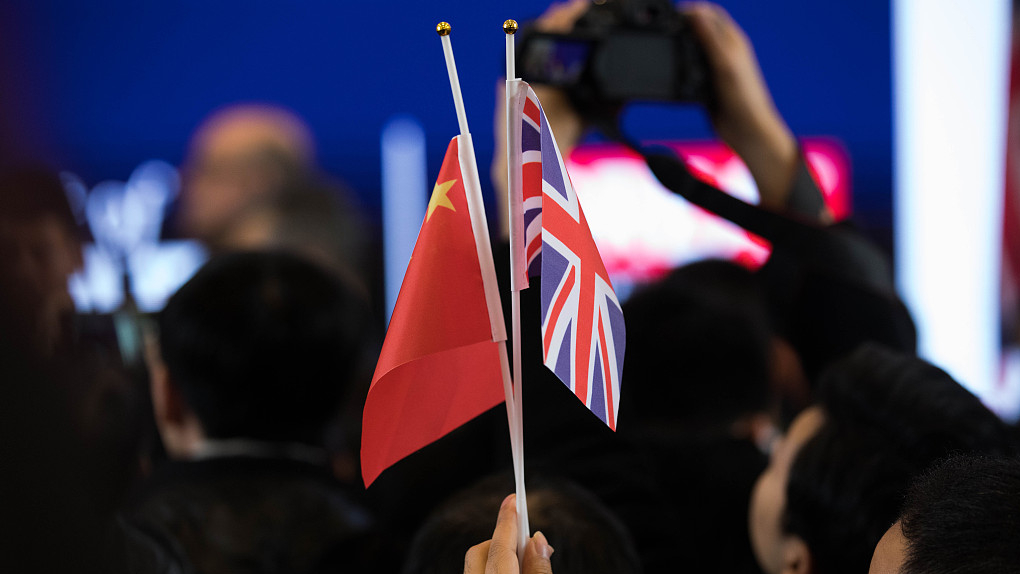
(Photo: CGTN)
The 10th China-UK Economic and Financial Dialogue will be held in London on June 17, just two weeks after Donald Trump's state visit to the UK. It comes at a time of a trade war between China and the United States.
During his meeting at 10 Downing Street, apart from bilateral issues, China was also a major topic. The Trump administration did not seem to hide its desire for European allies to move closer to the United States on the Huawei and 5G issue. Will China-UK cooperation be affected by the China-US trade war? How will China-UK economic relations develop in the future?
The golden era of China-UK relations is less being talked about in Britain now than it was three or four years ago. However, this does not mean that the UK has less demand for economic cooperation with China.
Currently, the focal point of British politics is Brexit, an issue that seems to overshadow everything else, including China-UK relations.
Judging from developments over the past few years, the UK's economic policy towards China has been active, and the factors supporting these policies will be maintained.
For example, on the issue of RMB internationalization, the central banks of the two countries signed a currency swap agreement with a scale of 350 billion Chinese yuan (roughly 40 billion pounds).
London has become the second largest offshore trading center of RMB after Hong Kong. If the UK leaves the EU, it is likely to lose the financial passport of the EU.
Consolidating London's status as a financial center is an important consideration of the British government. It is in the UK's national interest to further support the internationalization of the RMB and attract more relevant business to London. China and the UK also share a lot of common ground on multilateral mechanisms.
In 2015, Britain actively became the first major western country to support the establishment of the Asian Infrastructure Investment Bank (AIIB). Both the UK and China support free trade. The UK is now a member of the European Union, so has no independent trade negotiation authority. When it leaves the EU, it may have more consensuses with China on trade policy than the EU, which may lead to early free trade agreement (FTA) talks with China.
At the same time, it is difficult for the US factor to have a substantial impact on China-UK cooperation, given the major differences between the UK and the US.
On climate change and on Iran policy, the two sides are seemingly finding it difficult to bridge the gap. In the past, Britain was important to the United States in large part because the United States could influence the European Union through Britain.
However, after Brexit, Britain's strategic value to the United States will be reduced which means, to a large extent, US-UK relations will hardly be as close as they once were.
Meanwhile, the UK, as a great nation, will not blindly follow the US in its foreign policy, including its policy towards China.
In the future, the test of China-UK economic cooperation may come from the political field.
The current leadership election of the British Conservative Party shows that due to huge differences over Brexit, the political landscape of the UK is seriously divided, with fierce partisan conflicts.
This may lead to a lack of coordination on and lack of comprehensive consideration of policy toward China, such as the patrol of British warships in the South China Sea.
It is expected that the Sino-UK relationship will keep walking uphill in the future despite the current blurring trend of UK politics. In particular, it is nearly impossible for the UK to step back on bilateral economic cooperation with the second largest economy in the world at the instigation of the US.


